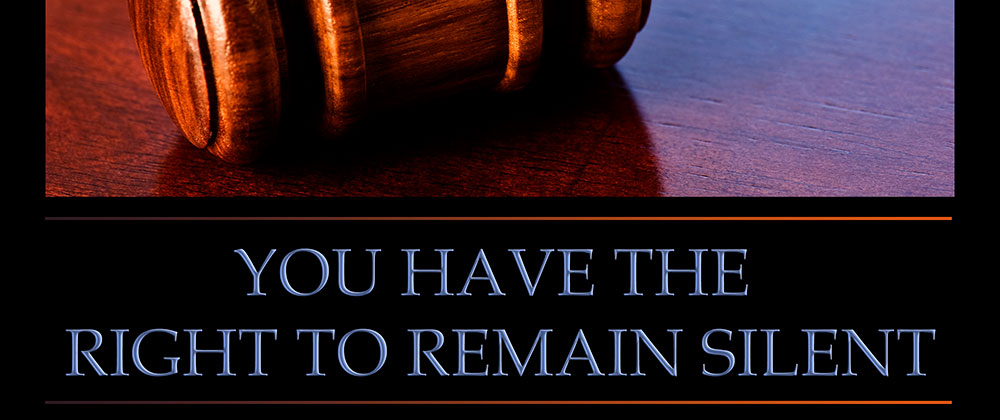You Have the Right to Remain Silent
If you are pulled over or stopped by the police, your first inclination might be to answer anything you are asked and try to talk your way out of being arrested. However, it is rarely a good idea to talk to the police when you are being investigated for a crime. If you do agree to give a statement or answer questions, anything you say can be used against you and likely will. Fortunately, you have some important constitutional rights you should know and exercise whenever you are confronted by a law enforcement officer. Here’s some information from the Fort Pierce criminal lawyers at Kirschner & McEnery Law about what to do if you are questioned by the police.
It is easy to panic when you are detained or confronted by law enforcement even in the perfect most mundane situation. It’s important no matter what the situation is that you invoke your right to remain silent and ask for an attorney. As criminal defense attorneys, Stephanie and Jay, have heard clients explain time and time again that they thought they could talk their way out of it, or the officer was nice, or they thought honest was the best policy.
There are many different defenses available no matter how bad you think your situations looks. You frequently have more rights than you are aware and an attorney like Jay or Stephanie can pursue those avenues which could result in evidence being thrown out. Both Stephanie and Jay have successfully argued for the client’s constitutional rights and have had evidence excluded in the past, that exclusion results in swift dismissal when no other evidence exists.
The strongest evidence that could ever be presented against you is your own word- even if there is evidence it’s easier to negotiate a fairer sentence without any admissions. The lack of a confession can also result in better plea offers, even when otherwise damning evidence may exist.
Admissibility of Statements Made by Suspects
In a criminal case, the hearsay rule applies to many out-of-court statements. Under this rule, statements made outside of court without the ability to challenge them are inadmissible in court. However, there are multiple exceptions to the hearsay rule listed in § 90.803, Fla. Stat. (2023), including statements made by the defendant admitting guilt or providing an inference of guilt.
Because of this exception, anything you say to the police can be used by the prosecutor to secure a conviction. This might include statements you think will absolve you of suspicion but can actually be used against you.
In some cases, the police might not have enough evidence to charge someone with a crime without getting their statement about what happened. Giving a statement to the police when you are a person of interest could result in criminal charges and harm your ability to defend against the allegations against you.
Your Rights
Under the Fifth Amendment to the U.S. Constitution, you have the right against self-incrimination. This includes the right to remain silent when an officer questions you about a crime. If you invoke your constitutional rights, the police and prosecutor cannot use your silence as evidence of guilt. However, if you agree to speak, the prosecutor and police can use your statements against you in court as evidence of guilt.
When an officer arrests you, they are supposed to give Miranda warnings to advise you of your constitutional rights to remain silent and to be represented by an attorney. They can’t interrogate you without reading you your rights. In some cases, officers will delay an arrest to try to question someone before taking them into custody to avoid advising them of their rights. For example, if an officer pulls you over for a suspected DUI, they might ask you about how much you have been drinking to try to elicit incriminating statements before you are placed under arrest.
You should avoid providing statements that could incriminate you. If a police officer asks you about a suspected crime, it’s best to politely tell the officer that you don’t want to speak and want to be represented by an attorney. Even if you are subsequently arrested, you should not be subjected to a Florida police interrogation if you have invoked your rights. Instead, all questioning should end once you invoke your right to remain silent and to have an attorney.
What Happens if You Gave Statements?
If you did give the police a statement after being charged with a crime, your Fort Pierce criminal lawyer at Kirschner & McEnery will review the circumstances to investigate whether your rights might have been violated. For example, if the police used coercive tactics and duress to secure a false confession, your attorneys could file a motion to suppress your statement to have it declared inadmissible against you by the court. Other situations could also result in your statements and any evidence illegally gathered as a result being thrown out of your case.
Talk to Our Fort Pierce Criminal Lawyers
The earlier you invoke your right to remain silent- the better. Stephanie and Jay both have and continue to represent individuals before charges have even been filed against them. In many of these cases, charges never come. If you are being accused of a crime or receive a call from law enforcement who just want to “ask you a few questions,” call Kirschner and McEnery Law. We have years of combined experience successfully defending people against all levels of criminal charges and are prepared to help you build the strongest defense possible. Call us today to schedule an appointment at (772) 489-8501.




